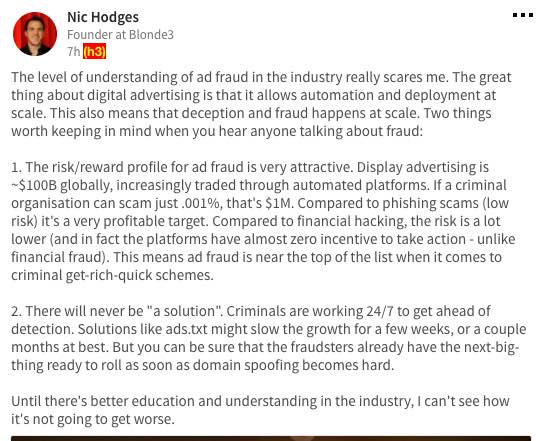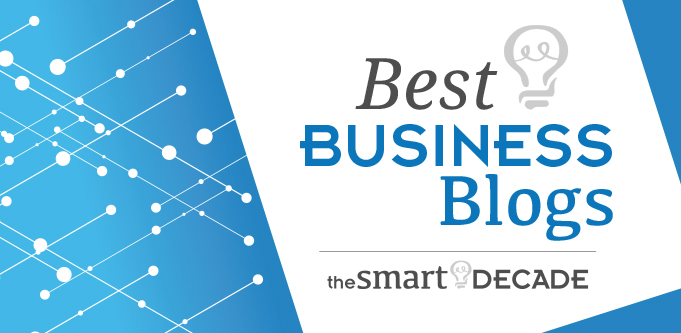Brands Hit By Massive Ad Fraud
Welcome back Rankers! I’m back in Melbourne! Cold Melbourne to be honest. I went from Dubai, which was 46°C every day, to Melbourne. And it’s cold. If you are new here, we’ve been doing this video since 2005, pre-YouTube days, and it comes out every week full of free tips on digital marketing, SEO, and that sort of stuff. So, if you like it, please subscribe on the YouTube channel as it’s the easiest way to keep up to date. And if you do happen to like it, please share us with your friends.
When Ad Exchanges Don’t Add Up
One of the big stories that has come out this week I have to thank Nic Hodges from Blonde3 for. Nic is a really smart bloke and has been in the industry a long time; he posted an article on ad fraud that has just been put out on Business Insider.

What has happened is that Google and a bunch of big publishers conducted a study, and what they found was that there has been billions spent on ads that have been fraudulent. So basically, you have this thing called programmatic advertising, which is great, and it’s what appears on all these other sites. You may know them better as display advertising. So you can advertise in Facebook and that would be display advertising. If you advertised in search, that would be search advertising. There’s different user intent. Display advertising is also the stuff that follows you around the web. You know, the creepy stuff where people complain they keep seeing the same ads for the same bloody thing. Like the coffee machine for Arabian coffee that keeps appearing everywhere! That’s because you’ve been to the site at one point that sold that thing and they’ve put a cookie in the machine. Then whoever else is showing Google Ads will show you that pot of Arabian coffee. That’s what we do.
The other way to get ads on to those sites, the other trick that publishers will use, is a thing called ad exchanges. This is where you put your site into a big exchange and people can bid to advertise on your site. What’s been happening though, scammers and the ne’er-do-well, have been scamming as you’d expect. They are now saying that a lot of these ad exchanges that are handled programmatically, and you are talking millions of transactions happening every second to have these ads displayed around the place, are fraudulent.
Scammers are going to these ad exchanges and saying that they sell ads on CNN, or AOL Time-Warner, for example, when in fact they don’t. Tricky little scammers. They then walk away with people’s money.
So there is now going to be a new initiative, and hopefully it will work, where you will be able to have a little file on your site if you are a big publisher, or a massive blogger that gets lots of traffic from Google, and that will let ad exchanges know whether they are actually allowed to sell ads for your site. That should put a stop to it. It’s a new initiative that has to be rolled out.
Cost of Acquisition
But what I find myself asking is why ad fraud is still important? To me it says that if you are worried about ad fraud, or if you’re not worried about ad fraud, there are one or two things not happening. Either, you aren’t measuring your total cost of acquisition, because if you’re upset about ad fraud and it comes within your window of acquisition, let’s say it’s ten dollars per customer depending on the industry that you’re in, and three or four bucks of that might be ad fraud. Well that’s sort of getting up there with 40% ad fraud. Can you get that down a bit? Sure, maybe a bit. But for big brands, what’s lacking here I think is the inability to understand what the total cost of acquisition is, because then you can stop worrying about ad fraud.
It’s the same as search traffic. You might get a lot of search traffic from Google that isn’t necessarily accurate or relevant for you. For instance, you might get someone who just wants to come to your site just to work out how to do something and then never return. That happens to our site all the time. So then you may think that traffic isn’t worth a lot. Maybe. But if you have a total cost of acquisition, or an acceptable cost of acquisition, then it really doesn’t matter because you know that it might have cost ten dollars to get that person on my site and you’re okay with that. We’ve had some clients where fifty to sixty dollars is an acceptable cost of acquisition through search. You have to put the same metrics in place for your display remarketing and all those sorts of things. Go and have a look at the article. It’s got some funny graphs in it.
Fake Ad Inventory.
Ads sold on ad exchanges for a publisher that doesn’t sell on ad exchanges. The number is 6.3 billion, that’s the number of ad impressions that they can sell but they don’t actually sell them. And as Nic points out in his initial link on LinkedIn, these scammers only need a .001% of the market to make a million bucks. It’s quite lucrative. But what I would say is to have in mind an acceptable cost of acquisition, measure your costs, and measure what you’re requiring. Then if it’s within that, who cares!
And that’s it for this week. I’ll see you next week. Thanks very much. Bye.

Jim’s been here for a while, you know who he is.


